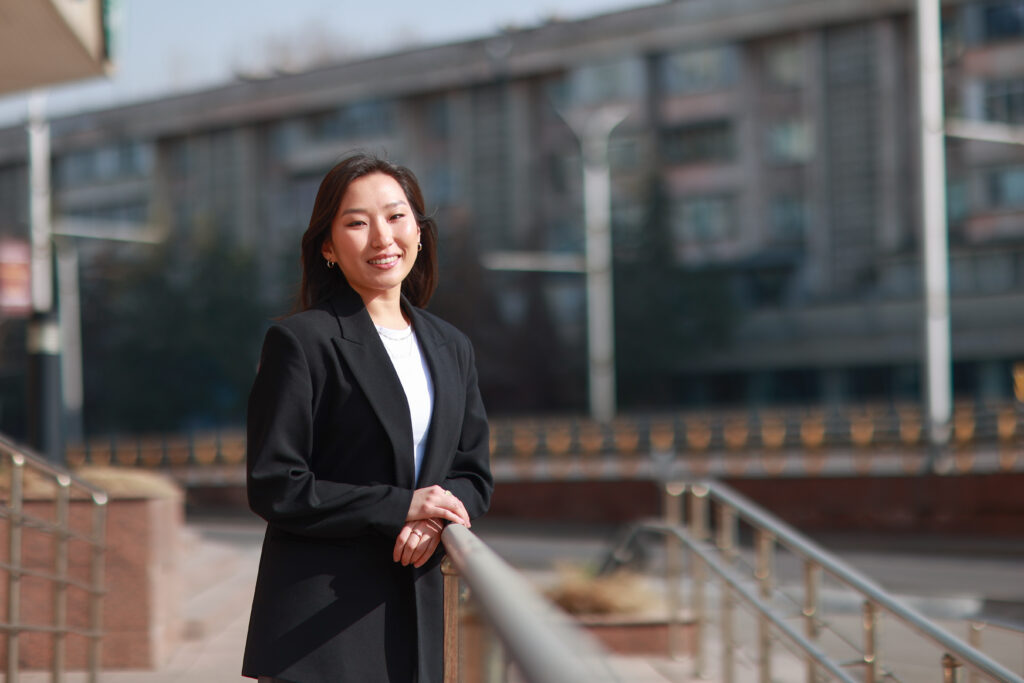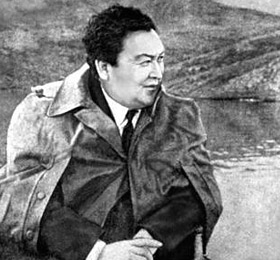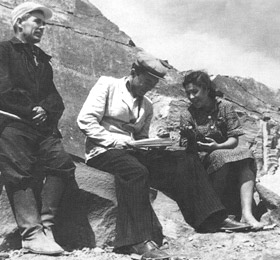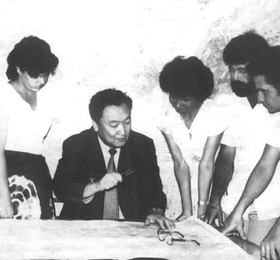Aidana Segizbayeva
Specialization: public health. Internship: University of British Columbia, Canada.
 How a first-year graduate student of one of the capital’s universities from small town of Kulsary could win the competition of the Yessenov Foundation? How was her internship at one of the best laboratories in the world? We asked 24-year-old Aidana Segizbayeva few questions about this and the challenges of her research work.
How a first-year graduate student of one of the capital’s universities from small town of Kulsary could win the competition of the Yessenov Foundation? How was her internship at one of the best laboratories in the world? We asked 24-year-old Aidana Segizbayeva few questions about this and the challenges of her research work.
When did your interest in healthcare first appear?
At school. I really loved the biology, especially was interested in the topic of DNA and fetal development. I admired how flawlessly the process of human development is arranged. After obtaining a bachelor’s degree in biology, I realized that it was important for me to understand not only how people come into this world, but also the whole process of fetal development.
How did you find out about the foundation’s competition, how it was held for you and why do you think you were chosen as the winner?
I found out about the foundation’s competition through friends and acquaintances who won and successfully went on an internship. They said that the foundation had contributed not only to their professional, but also to their personal growth. For me, the whole selection process was interesting and informative, as the format was new and unusual. During group interviews, we were given logical tasks that don’t have the right answer. It was necessary to demonstrate not only yourself but your skills. I remember that I sincerely enjoyed the process, as I like to solve logical problems. It seems to me that I was chosen as the winner not only because of my research experience and motivational letter. I think one of the reasons was that I was calm during the interview and answered honestly and confidently.
What did you do during your internship?
I worked in the laboratory of sexual health at Vancouver hospital. My supervisor was Dr. Lori Brotto, a Canadian psychologist, professor, widely known for her work on the study of sexual and reproductive disorders in women. Netflix even brought her in as an expert for the filming of a documentary. The essence of my research was to understand to what extent women from ethnically different groups pay attention to their sexual health. I also sought to identify their experience in this direction. Having worked with real patients in the hospital, I conducted almost three dozen interviews, filled out more than 200 questionnaires on aspects of women’s health. We also discussed how much the healthcare system is ready to help those who have problems with sexual health. We (being healthcare professionals) realized how we can change policies and regulations that will provide the necessary resources to improve the quality of life of patients. Based on the results of the study, we plan to prepare a scientific paper for publication in scientific journals (such as The Journal of Sexual Medicine) and present the results of the study at international conferences.
Why is this research topic important for Kazakhstan?
The problem of sexual health among women is extremely relevant in our country. In 2018, a study was conducted in Kazakhstan with the participation of more than 4,000 young people aged 15-19 years. It turned out that the average age of the beginning of sexual relations is 16.5 years, when only 9% of adolescents are aware, for example, about HIV/AIDS. Two thirds of respondents do not know about the prevention of unwanted pregnancy. According to the Statistics Committee of the Ministry of National Economy, 16.5% of women aged 18 to 75 who have ever been in a couple have experienced physical and/or sexual violence from a partner at least once. So, yes, the topic is very relevant for us and my research, I hope, will help to improve knowledge about sexual health and lead to an improvement in the treatment of its disorders.
What were the challenges during the internship in Canada?
Since I had to work directly with patients and conduct research at the hospital, I had to get permission from the ethics committee of the University of British Columbia. While I was waiting for my Canadian visa (which was also a slow process), I started preparing the necessary documents with the professor. It took more than 2 months. Despite the difficulties, I was able to get access to patients. One of the pleasant challenges already during the internship was the opportunity to learn how to express your thoughts professionally and freely to professors, colleagues and a scientific assistant.
What have you achieved?
The main result is the collection of data that can be used in subsequent studies. As I said, we are planning to publish a scientific article, we are working hard on it now. Dr. Brotto highly appreciated my research, and we discussed with her my candidacy for one of the positions in her laboratory. I am very glad that I was able to build a strong professional relationship with such a major researcher.
How did the internship help you?
It taught me how to do public health research, obstetrics and gynecology. I also got a great experience working together with senior researchers and professors and supervising my research assistant. I also now know how to use statistical and research software competently. My supervisor allocated time every week to meet and discuss the progress of the study, and her work ethic, organizational skills and time management are what I now use in my work.
What advice could you give to the future winners of our competition?
Take your time with the choice! Choose your laboratory, supervisor, research topic, university, city and even country carefully. Contact the previous winners and ask for their recommendations.
15.05.23, Stories
Seen by: 896





